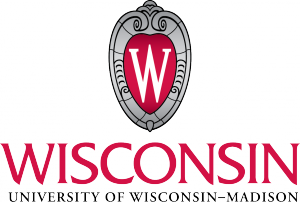Our Vision
The MTWC aims to make the transportation industry an in-demand sector for job seekers so that it offers pathways for all occupations, and becomes a first choice industry for the next generation.
What We Do
The Midwest Transportation Workforce Center (MTWC) works to advance a Midwest Strategy for talent.
Our staff works with industry, educators, and government to generate and share innovative approaches to attracting, retaining, and developing a diverse transportation workforce. Our scope is broad as it encompasses occupations that plan, design, build, and maintain our transportation infrastructure systems as well as occupations that facilitate the transportation of goods.
The MTWC leverages its network to promote exemplary practices in the areas of career awareness, career pathways, and stackable credentials in high-skilled, high-demand, high-wage occupations. MTWC partners with other networks to align talent development efforts.
This website and our social media presence serve as a portal for transportation resources.
Who We Are
Our Values
The MTWC believes that no single organization alone has the ability to promote and support activities in the region. Collective impact occurs when actors from different transportation sectors commit to a common agenda of creating multiple pathways to high-skill, high-wage occupations to improve the prosperity of Americans.
The MTWC comprises people and organizations involved in transportation workforce development in nine Midwestern states: Illinois, Indiana, Iowa, Kansas, Michigan, Minnesota, Missouri, Ohio, and Wisconsin.
The MTWC is a regional surface transportation workforce center funded by the US Department of Transportation Federal Highway Administration (FHWA). The center is located at the University of Wisconsin–Madison and is affiliated with the National Center for Freight and Infrastructure Research and Education (CFIRE).
The MTWC is led by Dr. Teresa Adams, a civil and engineering professor at UW-Madison. Dr. Adams has more than 25 years of research experience and is an expert in freight policy research. Dr. Adams also led the 21st Century Workforce Development Summit, one in a series of regional summits used to identify needs, set goals, strategies, and best practices across various transportation career paths. The regional summits culminated in the National Transportation Workforce Summit, which Dr. Adams also co-led in the spring of 2012 in Washington, DC.
The center’s program manager, Maria Hart, is a freight transportation researcher and a transportation planner by trade. Hart manages all center activities including stakeholder engagement and outreach strategies. She also curates the transportation workforce resource clearinghouse database. Hart applies social science approaches to center activities, including such methods as collective impact, community building, and communities of practice, in order to inspire conversations around transportation workforce development that drive innovation.
MTWC Staff | MTWC Collaborators & Partners

